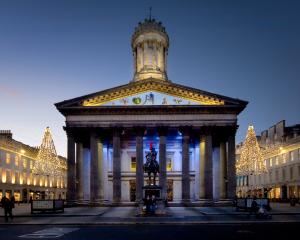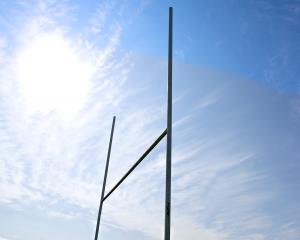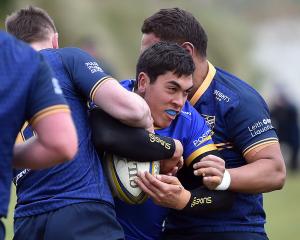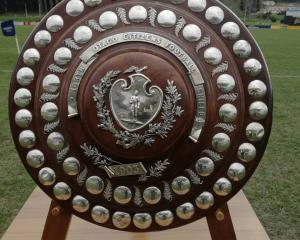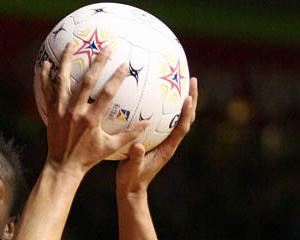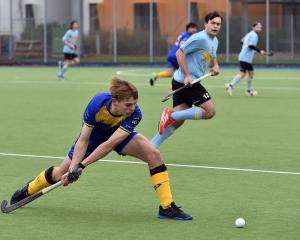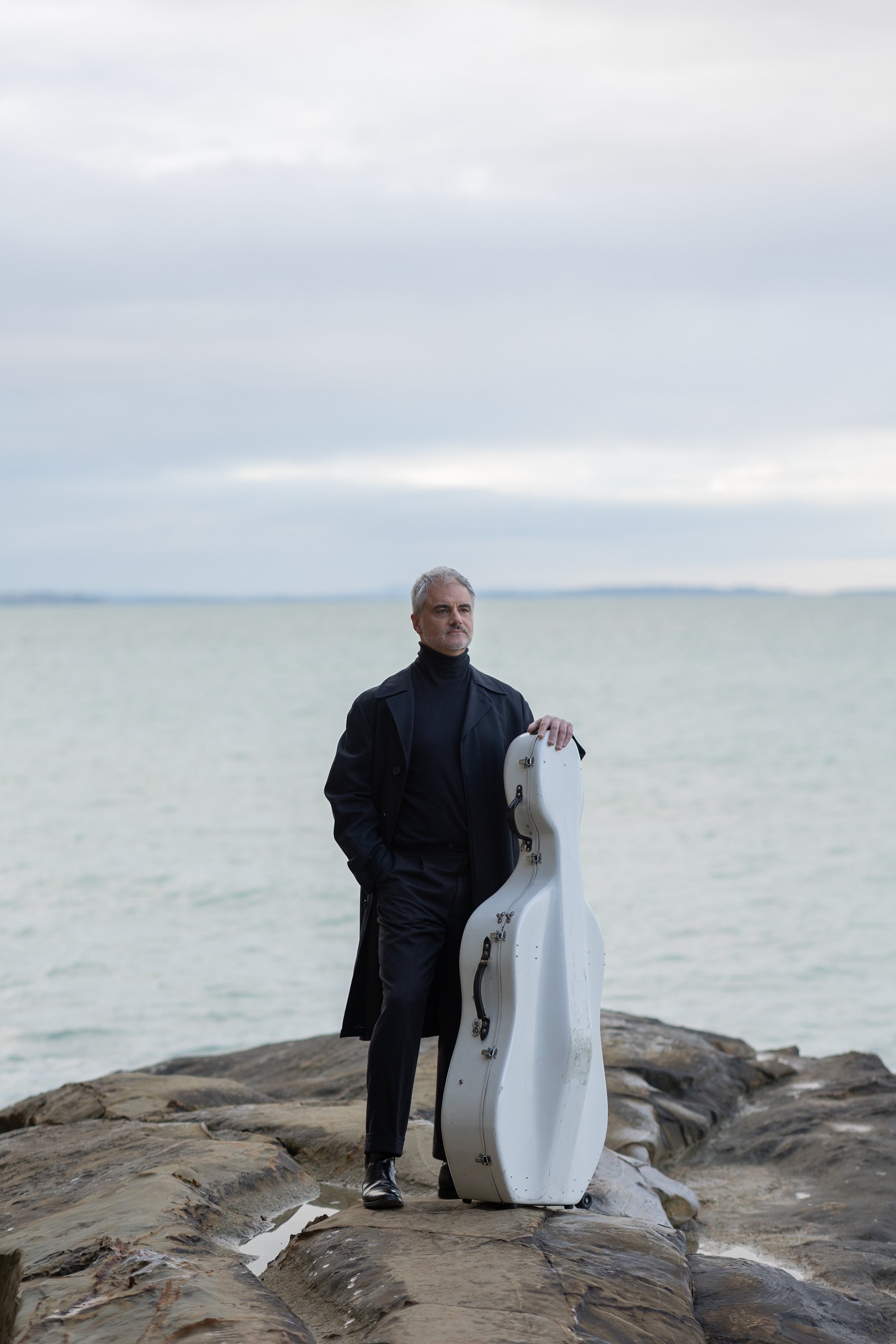
Before he even knew what classical music was, Ashley Brown was drawn to the cello.
Taken to Auckland Philharmonic Orchestra concerts by his mother, Brown would race up to the front and sit in front of the cellist sucking his thumb, content to watch.
While he cannot remember those experiences or why the cello so appealed, he did not say no when his mother thought his interest warranted lessons.
Brown continued to play and take lessons as one of his after school activities as he grew up, never assigning it much importance. However, it was not until he was studying law at the University of Otago that he began to realise something was missing.
For the first time in his life he was not taking cello lessons. He got involved with the Dunedin Symphony Orchestra and would practice in a small room at Unicol where he was living.
"I suddenly missed it. I was treading water and not really progressing, which was really annoying."
At a National Youth Orchestra camp in Christchurch he got to take part in a master class by Russian cellist and soon to be a professor at the University of Canterbury, Alexander Ivashkin.
"I thought ‘man, this guy is amazing’."
So he transferred his studies to Canterbury University and started a double degree in music and law. It soon became apparent that the cello demanded all of his attention if he was to continue with it, as physically it is important to develop the muscle structure needed for playing when young.And the rest, they say, is history. He won the Young Musicians Competition, the National Concerto Competition and a Young Achievers Award and got his masters in music at the University of Canterbury.
Brown headed overseas, achieving an Artist Diploma from Yale University and winning the Adam International Cello Competition and the ROSL Music Competition in London.
When he returned to New Zealand in 1999 he joined the Turnovsky Trio, and was artist in residence at the University of Waikato. During his three years there he was also cello lecturer at the Universities of Waikato and Canterbury.
It was while the principal cellist of the Auckland Philharmonia that he met violinist Justine Cormack, the orchestra’s then concertmaster.
"We played a couple of chamber gigs together and really had fun, so played some more."
Eventually they roped in pianist Sarah Watkins and the NZTrio was born. It went on to perform nationally and internationally, commission more than 70 new works and has featured at least one New Zealand composition in every concert throughout its 17 year history.
The trio won a Tui for Best Classical Artist at the 2017 Vodafone NZ Music Awards and two citation awards — the KBB Music/CANZ citation (2012) and the Lilburn Trust Citation (2017) — both for outstanding services to New Zealand Music.
While Watkins and Cormack have moved on (soon to Nelson and Wānaka respectively) about five years ago, Brown has kept the trio alive with guest artists until inviting violinist Amalia Hall and pianist Somi Kim to join him permanently just before the Covid pandemic hitting. For Kim it meant relocating back to New Zealand from London.
"One particular combination stuck out when Amalia and Somi joined me. We had a ball, bouncing off each other."
Brown’s love of the cello has never abated. Just why it appeals has never been clear. It could be that the sound of it is the same as a human voice, as far as the range, colour and general tone. It immediately accesses the emotions.
"For me personally, when I’m playing the instrument, it’s jammed right into my chest — where my heart is, actually. I’ve never said this out loud: the vibrations of the instrument are going right into my chest, into my heart, actually, which is quite strange, so I wonder if not only the sound is accessing emotions for me personally when I’m playing, it’s a physical sensation that goes straight through me."
He admits that, when on a busy stretch spending hours rehearsing and performing, he can become spent and needs a break.
"I do miss it if I don’t get to play for a while. But after a couple of days I get grumpy. I have to sit down and play again."
Even with the dramas a cello can cause, from needing a bigger car to an extra seat on the plane, he still feels it is a very special instrument.
"It’s a bit of a drag, but once you get it to where it needs to go and get it out of the case, the most glorious sound comes out."His love is backed up by an Australian ABC survey of its listeners this year which named the cello its top 100 instrument for its "warm, rich and lyrical tone colour", as well as its versatility.
Hearing of the Cellist of Otago’s "Cello Extravaganza" concert this weekend, which is bringing together at least 60 players from old to young in a concert conducted by Peter Adams, Brown says it shows the love many have for the instrument, although he will not be playing as has two concerts in Wellington and one in Greytown at the weekend.
Brown has highlighted the versatility of the cello over the years and has performed contemporary folk with Nadia Reid and recorded with University of Otago Mozart Fellow SJD and pop maestro Neil Finn.
"It’s still a novelty in some areas. I like getting involved in those kind of situations and bring that unusual element."
For Brown, those experiences are important to prevent the "tunnel vision" that can occur only playing one genre.
"All the different elements inform each other. You do a bit of playing with Nadia or SJD and you bring a little of what you learn in a situation like that into our concerts — the funky rhythms Enescu requires of it, if we access the feel we had in the recording studio with SJD then we’ve got this slightly laid back feel."
His work with the trio also benefits from the experience.
"We very much encourage each other to work outside the trio, as it brings fresh blood or fresh air and when you come back to the trio you bring that with you, that extra energy."
Each year the trio endeavours to find a theme that allows it to mix it up as well. They like to include something familiar, a well-known composer’s seldom heard work and a brand new piece, often composed by a New Zealander.
"The variety is really important. After 25 years of playing trio concerts, I’ve only played the Dvorak piece."
With the new lineup they looked at the identities and ethnicities that make up the trio playing music from their home countries, while the next season they looked at international, exotic elements.
So in their latest concert tour, Homeland 2, they chose folk music as the theme, looking at the ideas of home and coming at it "from different directions".
"To where it is close, warm and intimate as chamber music is meant to be, to get in close in a small space to the musicians. It’s one of the most intimate art forms there are, as you can get right up close to the art making. We dug down into that and thought of life at home — mums singing lullabies to their children and circled out to folk songs of communities rather than the musical elite, looking at more homely and comfortable."
The 19th century Czech composer Antonin Dvorak came to mind straight away as he was "all about folk music" of his place and time in particular Piano Trio No. 3 in F minor, Op. 65.
"He’s the crux of all the concerts this year."
They then went looking for composers who were examining the voice of their own homeland or home life in their work. Chinese American violinist and composer Chen Yi’s Tunes from My Home fit the bill and became the name of the concert.
One of a small group of top Chinese composers, Chen’s piece evokes her life growing up in China, being interned during the cultural revolution, then becoming the first Chinese woman to receive a Masters of Art in music composition from the Central Conservatory of Music in Beijing. She now lives in America.
"This piece in particular evokes Chen Yi’s own home, her upbringing, her village. The Chinese sound and European sound is quite intertwined for her."
She manages to make a piano, cello and violin create a traditional Chinese sound, he says.
"As soon as the piece opens you feel like you are in a village somewhere . . . the sound is floating through the valley, it’s exotic; a very intimate examination of her own sense of belonging to home."
They then selected Romanian-French composer George Enescu’s Piano Trio A minor one of the very few works he composed during World War 2 and shows his fascination with the Romanian countryside and folk music of his homeland. It is a relatively unheard piece.
"There’s a heavy, perfumy sense of romance through this, it’s heavy flourishy, as he reminisces about Romania."
The brand new piece in the selection is from New Zealand composer Victoria Kelly, Brown’s wife. It has been many years since Kelly has composed a piece for the trio, so they decided it was time for a new piece.
Kelly took inspiration from her own heritage for Lyre going on a journey to the Faroe Islands, a remote group of islands in the North Atlantic Ocean between Iceland and the Shetland Islands and back to New Zealand.
"There’s lots of strumming action, lots of references to the beautiful old folk music of the Faroe Islands. It’s the more peaceful element in the programme."
TO SEE
Homeland 2: Tunes From My Home, NZTrio, September 1, Dunedin Public Art Gallery; Cello Extravaganza, September 3, Dunedin Town Hall.


